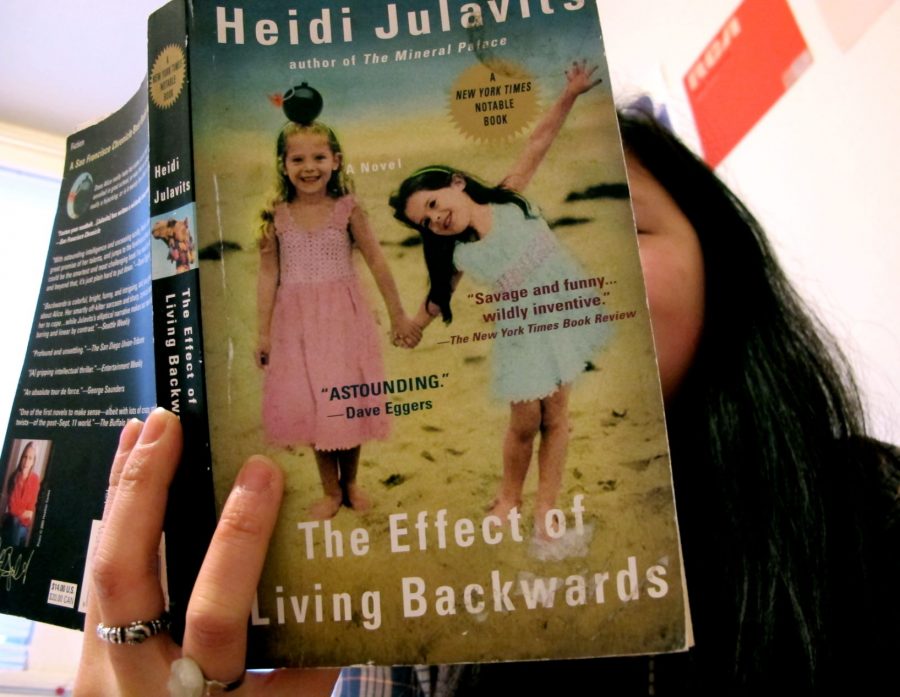OVERBOOKED: ‘The Effect of Living Backwards’
January 24, 2015
I’m just going to go ahead and admit it: this was such a bad idea. I’m reading a book a week for my New Year’s resolution and for this column, which is a problem because I have to read two to three books weekly for class. Sure this past week was “syllabus week,” but I’ve already been assigned two short papers and hundreds of pages of reading and have two internships.
What have I done.
Instead of steadily reading this week’s novel, “The Effect of Living Backwards” by Heidi Julavits, I watched an entire season of “New Girl” and had a mid-mid-midlife crisis. As the week ended and I’d only gotten 50 pages into this 350 page book, I shifted into reading high-gear. I skipped two parties and deleted the Tumblr app off of my phone.
But let’s get to the books. I stumbled across “The Effect of Living Backwards” at a used bookstore in Mandeville, LA. On the cover, a blurb by Dave Eggers called this book “Astounding… This could be the smartest and most challenging book I’ve read by anyone our age, and beyond that, it’s just plain hard to put down.” Since I’m a sucker for book blurbs — their overenthusiastic appreciation almost fills me with more joy than the book itself — and Dave Eggers, I clearly had to buy this book. Plus she co-edits “The Believer”! And is married to short story master Ben Marcus! I was so excited for this book!
And then it sat on my bookshelf for five months.
“The Effect of Living Backwards” tells the story of sisters Alice and Edith. The sisters are on a plane when it is hijacked, but the hijacking is a setup by the International Institute for Terrorist Studies… or is it? There are conspiracies within conspiracies, and the book doubles back on itself. The narrative jumps between linear events and flashbacks that reveal the sisters’ complicated relationship, their fellow passengers’ shameful stories and their hijackers’ past.
It’s a Russian doll of a novel, and each nested layer reveals something stranger and more poignant than the one before it. Written post-Sept. 11, Julavits writes a complicated book that probes the ballooning consequences of our actions, our ethical obligations towards one another and the assumptions we make. I lost myself in this strange, refracted world that felt like an intersection of the films “Nymphomaniac,” “Amelie” and “Red Eye.” No, but really.
Even with its weighty subject matter, the book is absurd, satirical and outright fun. Julavits’ extreme detailing dances on the line between frustrating and thrilling, however — it was eye-rolling-ly postmodern and insincere at its worst, heartbreaking at its best.
I thought about this book for days after I finished it, and it left me feeling disjointed and sad and like a meta-narrator would appear in my life at any moment. I finally started listening to Danish punk rock band Iceage because I couldn’t shake the feeling. Things still look complicated. But I’m okay with it for now.
Next week: “Yes Please” by Amy Poehler










Leave a Comment